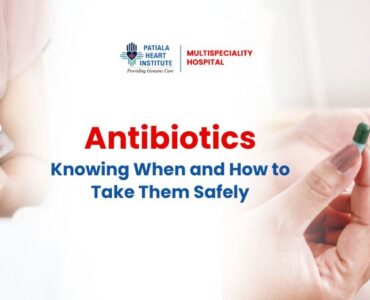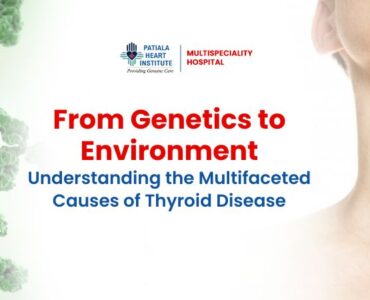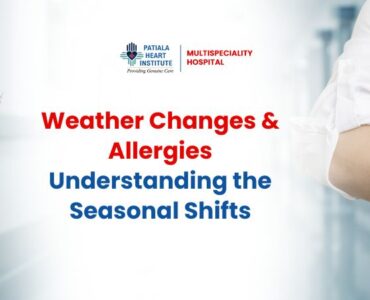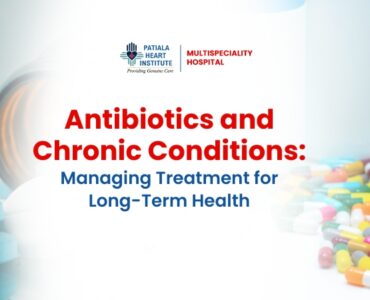Childhood vaccinations are a cornerstone of preventive healthcare, playing a crucial role in safeguarding children’s health and well-being. As a parent, you have the power to protect your child from a range of serious and potentially life-threatening diseases. Immunizations stimulate the body’s immune system to produce antibodies that fight off infection, providing your child with immunity against diseases that can cause severe illness, disability, and even death.
By vaccinating your child early in life, you are not only protecting them but also contributing to community immunity, reducing the spread of infectious diseases, and protecting vulnerable populations, such as infants, the elderly, and individuals with weakened immune systems.
With the advent of vaccines, many once-deadly diseases, such as polio, measles, and diphtheria, have been largely eradicated or brought under control. This success story of vaccines has saved countless lives and prevented untold suffering. Childhood vaccinations are widely recognized as one of the most effective public health interventions in history, offering children a healthy start in life and paving the way for a brighter, disease-free future. This track record of success should give you confidence in the safety and effectiveness of vaccines for your child.
Understanding Childhood Vaccinations:
Vaccinations, also known as immunizations, are medical interventions that stimulate the body’s immune system to produce immunity to specific diseases. Vaccines contain weakened or inactivated forms of disease-causing organisms, such as viruses or bacteria, or parts of these organisms, known as antigens. When administered, vaccines trigger the immune system to recognize these antigens as foreign invaders and mount a defense response, producing antibodies that target and neutralize the pathogens.
Explanation of Immunization Schedules:
Immunization schedules outline the recommended timing and sequence of vaccinations for children from birth through adolescence. These schedules are carefully designed by public health authorities and medical experts based on scientific research, epidemiological data, and disease prevalence to provide the most effective protection against preventable diseases. Immunization schedules specify the age at which each vaccine should be administered, the number of doses required, and any recommended catch-up doses for missed vaccinations. Vaccines are typically administered during well-child visits and regular check-ups with healthcare providers, starting shortly after birth and continuing throughout childhood and adolescence. Following immunization schedules ensures that children receive vaccines at the optimal times to develop immunity before they are exposed to potentially infectious diseases, providing them with the best possible protection against illness and complications.
Recommended Vaccines for Children:
Childhood vaccines are a critical component of preventive healthcare, providing children with immunity against a range of serious and potentially life-threatening diseases. Common childhood vaccines target diseases such as measles, mumps, rubella, polio, diphtheria, tetanus, pertussis (whooping cough), hepatitis B, Haemophilus influenzae type b (Hib), pneumococcal disease, rotavirus, varicella (chickenpox), and influenza. These vaccines are typically administered in multiple doses over the course of infancy, childhood, and adolescence to ensure optimal immunity and protection.
Explanation of Each Vaccine and Its Purpose:
- Measles, Mumps, and Rubella (MMR) Vaccine: This vaccine protects against measles, mumps, and rubella (German measles), three highly contagious viral diseases that can lead to serious complications, including pneumonia, encephalitis, and birth defects.
- Polio Vaccine: Provides immunity against poliovirus, a crippling and potentially fatal disease that can cause paralysis and respiratory failure.
- Diphtheria, Tetanus, and Pertussis (DTaP) Vaccine: Guards against diphtheria, tetanus (lockjaw), and pertussis (whooping cough), bacterial infections that can cause severe respiratory distress and neurological complications.
- Hepatitis B Vaccine: This vaccine prevents hepatitis B virus infection, a liver disease that can lead to chronic illness, cirrhosis, and liver cancer.
- Haemophilus Influenzae Type B (Hib) Vaccine: Protects against Hib bacteria, which can cause meningitis, pneumonia, and other serious infections, particularly in young children.
- Pneumococcal Vaccine: Guards against pneumococcal bacteria, a common cause of pneumonia, meningitis, and bloodstream infections.
- Rotavirus Vaccine: Prevents rotavirus infection, a leading cause of severe diarrhea and dehydration in infants and young children.
- Varicella (Chickenpox) Vaccine: Provides immunity against varicella-zoster virus, which causes chickenpox, a highly contagious viral infection characterize by an itchy rash and flu-like symptoms.
- Influenza Vaccine: Protects against seasonal influenza viruses, reducing the risk of flu-relates complications and hospitalizations.
Recommended Ages for Vaccination:
The recommend ages for vaccination vary depending on the vaccine and the specific immunization schedule recommended by healthcare authorities. In general, childhood vaccines are administered in multiple doses starting shortly after birth and continuing throughout infancy, childhood, and adolescence. For example, the first dose of the hepatitis B vaccine is typically given shortly after birth, followed by additional doses at 1-2 months and 6-18 months of age.
The MMR vaccine is usually administered in two doses, with the first dose given at 12-15 months and the second dose at 4-6 years of age. Vaccination schedules may also include catch-up doses for missed vaccinations or for individuals who have not receive vaccines at the recommend ages.
Benefits of Childhood Vaccinations:
Protection Against Serious Diseases:
Childhood vaccinations offer invaluable protection against a wide range of serious and potentially life-threatening diseases. By stimulating the body’s immune system to produce antibodies that target specific pathogens, vaccines provide children with immunity against diseases such as measles, mumps, rubella, polio, diphtheria, tetanus, pertussis (whooping cough), hepatitis B, Haemophilus influenzae type b (Hib), pneumococcal disease, rotavirus, varicella (chickenpox), and influenza.
Vaccinations significantly reduce the risk of infection and the severity of illness associates with these diseases, preventing complications such as pneumonia, encephalitis, paralysis, liver damage, and death. Through timely and routine vaccination, children can enjoy a healthier and safer childhood, free from the burden of preventable diseases.
Herd Immunity and Community Protection:
Childhood vaccinations not only protect vaccinated individuals but also contribute to herd immunity, which helps prevent the spread of infectious diseases within communities. When a significant portion of the population is immune to a disease, either through vaccination or previous infection, it becomes more difficult for the disease to spread from person to person.
This provides indirect protection to individuals who are not vaccinated or who cannot receive vaccines due to medical reasons, such as infants, the elderly, and individuals with weakened immune systems. Herd immunity helps protect vulnerable populations and reduces the overall prevalence of diseases, leading to fewer outbreaks and a healthier community as a whole.
Long-Term Health Benefits:
Childhood vaccinations offer long-term health benefits that extend far beyond childhood. By preventing diseases early in life, vaccines can help children avoid serious complications and long-term health consequences associated with infectious diseases. For example, vaccination against hepatitis B can prevent chronic liver infections and liver cancer later in life, while vaccination against human papillomavirus (HPV) can reduce the risk of cervical, anal, and other cancers.
Vaccines also promote overall health and well-being by reducing the burden of illness, hospitalizations, and healthcare costs associated with preventable diseases. By protecting children from infectious diseases during their formative years, vaccines lay the foundation for a lifetime of good health and productivity.
Conclusion
Accessing childhood vaccinations is essential for protecting children’s health and preventing the spread of vaccine-preventable diseases. Regular check-ups and well-child visits play a crucial role in monitoring children’s immunization status and ensuring that they receive recommended vaccines at the appropriate times.
So, are you looking for a physical exam and vaccination specialist? Look no further. Patiala Heart Institute offers childhood vaccinations provided by pediatric vaccination specialists. With expert guidance and personalized care, parents can ensure that their children receive the vaccines they need to stay healthy and protected. Schedule an appointment with Patiala Heart Institute today to ensure that your child gets the vaccines they need to stay healthy and protected.







